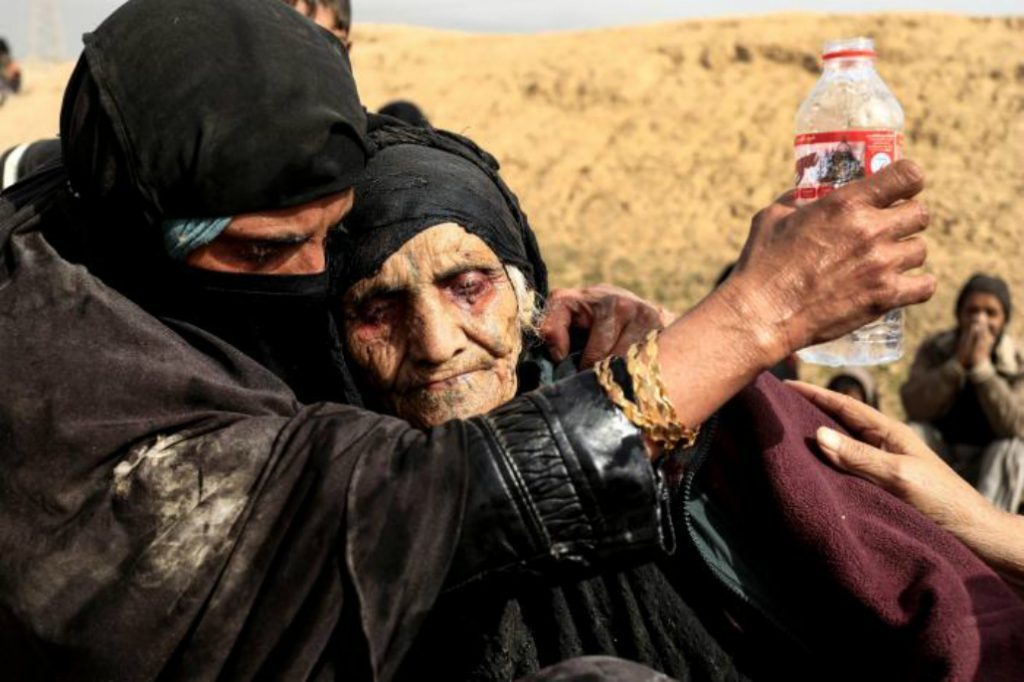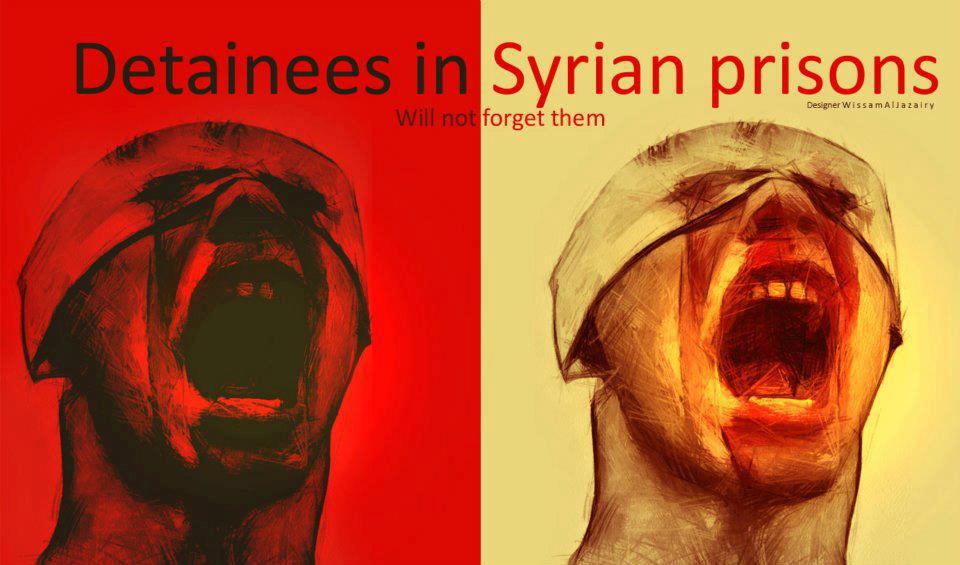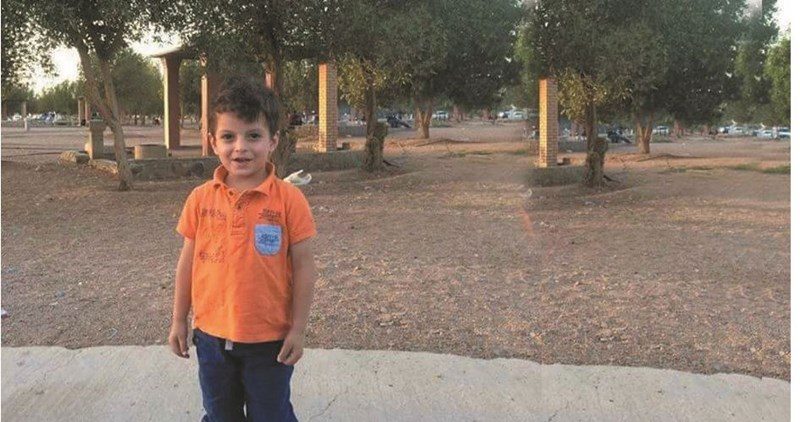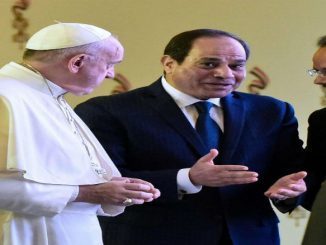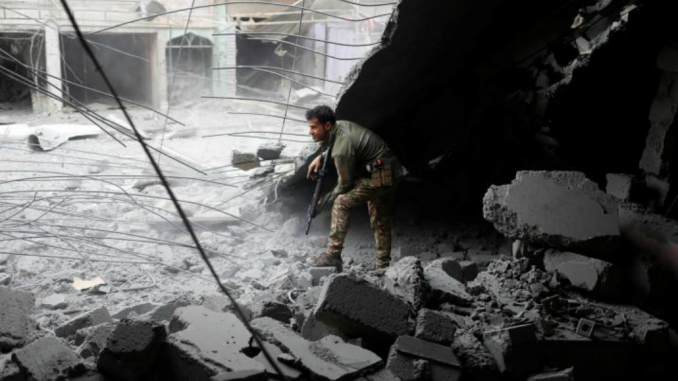
The battle of Mosul entered a new phase when U.S.-backed Iraqi army units on Wednesday took control of the last major road out of western Mosul, while ISIS has been putting heavy resistance to prevent the city from falling.
The United States is providing air and ground support to Iraqi and Kurdish forces trying to dislodge the hardline group from Mosul, captured in 2014.
Iraqi forces captured the eastern side of Mosul in January after 100 days of fighting and launched their attack on the districts that lie west of the Tigris river on Feb. 19.
Islamic State militants who retreated across the Tigris river to western districts also regularly target civilian areas under government control in the east with mortars and grenades dropped from drones.
Several thousand militants, including many who traveled from Western countries to join up, are believed to be in Mosul among a remaining civilian population estimated at the start of the offensive at 750,000.
They are using mortars, sniper fire, booby traps and suicide car bombs to fight the offensive carried out by a 100,000-strong force made up of Iraqi armed forces, regional Kurdish peshmerga fighters and Iranian-trained Shi’ite paramilitary groups.
All roads cut
The army’s 9th Armored Division was within a kilometer of Mosul’s Syria Gate, the city’s northwestern entrance, a general from the unit told Reuters by telephone.
“We effectively control the road, it is in our sight,” he said.
Mosul residents said they had not been able to travel on the highway that starts at the Syria Gate since Tuesday. The road links Mosul to Tal Afar, another Islamic State stronghold 60 km (40 miles) to the west, and then to Syria.
The closing of the westward highway meant that Islamic State are besieged in the city center, said Lt General Abdul Wahab al-Saidi, the deputy commander of the Counter Terrorism Service (CTS), deployed in the southwestern side.
Units from the elite U.S.-trained division battled incoming sniper and anti-tank fire as they moved eastwards, through Wadi al-Hajar district, and northward, through al-Mansour and al-Shuhada districts where gunfire and explosions could be heard.
These moves would allow the CTS to link up with Rapid Response and Federal Police units deployed by the riverside, and to link up with the 9th Armored Division coming from the west, tightening the noose around the militants.
In addition, the combined forces advanced in the western side pushing the ISIS militants into a shrinking area.
“The provincial council and the governorate building are within the firing range of the Rapid Response forces,” a media officer with the elite Interior Ministry units told Reuters, referring to within machinegun range or about 400 meters (1,300 feet).
Taking those buildings would help Iraqi forces attack the militants in the nearby old city center and would be of symbolic significance in terms of restoring state authority over the city.
U.S.-trained Counter-Terrorism Service (CTS) units battled Islamic State sniper and mortar fire as they moved eastwards through Wadi al-Hajar district to link up with Rapid Response and Federal Police deployed by the riverside, in a move that would seal off all southern access to the city.
Airstrikes kill scores of civilians
A number of civilians and Islamic State members were killed in an attack that hit a mosque and damaged neighboring houses in the west side of Mosul.
The Omar al-Aswad mosque, in the al-Faruq district of the old city center, was hit by an airstrike, three residents in the same area said.
Neighboring houses were damaged or collapsed because of the blast, they said without giving a precise estimate of the casualties as their moves are restricted by the militants.
The spokesman for the U.S.-led coalition said he wasn’t aware of a strike targeting the mosque. Iraqi military media officers said the battle was ongoing and troops were targeting Islamic State wherever they could, but did not say this specific mosque was targeted.
The mosque was where Islamic State sent members of the Iraqi national police and armed forces to surrender their weapons and register in a militant database when the group seized control of the city in 2014. In return they received a pass to prevent their arrest and possible execution at militant check points.
Displaced and hungered civilians
More than 31,000 civilians have been forced from their homes in western Mosul in the latest phase of the battle that began on Feb. 19, while the total number displaced since the offensive for Mosul started in October exceeds 191,000, according to the United Nations.
On Thursday, more than a thousand more streamed out of southern Mosul, the majority on foot, crossing over a deep trench which appears to have served as an Islamic State defense, some waving white flags while some said the militants fired at them as they crossed a defensive trench.
The Iraqi military is taking women and children to camps and screening men to make sure they are not Islamic State fighters. Hundreds of women and children gathered in one abandoned bus station in the rain to receive food from the army and a local charity.
One man was carrying a woman who had lost consciousness after her son was wounded by shrapnel as they fled the Tal al-Rumman district.
Another man, Abu Ali, arriving from Tal al-Rumman with his four young children, said Islamic State militants had killed their mother three months ago after she went out with her face uncovered. He said he had found her body in the mortuary, adding: “I would drink their blood.”
Many fleeing residents complained of hunger. One boy, Ali, held his baby sister as they queued for food handouts. He said they tried to flee on Wednesday but gave up when they came under Islamic State gunfire. On Thursday they managed to get out.
A man said he spent 11 days hiding in his house with no food, no water and no idea of what was happening outside.
“The archangel of death would have come for us if we stayed any longer,” he said.
Aid agencies put the number of killed and wounded at several thousands, both military and civilians.
The United Nations World Food Programme said on Monday it was extremely concerned about the dire humanitarian situation facing families in western Mosul.
